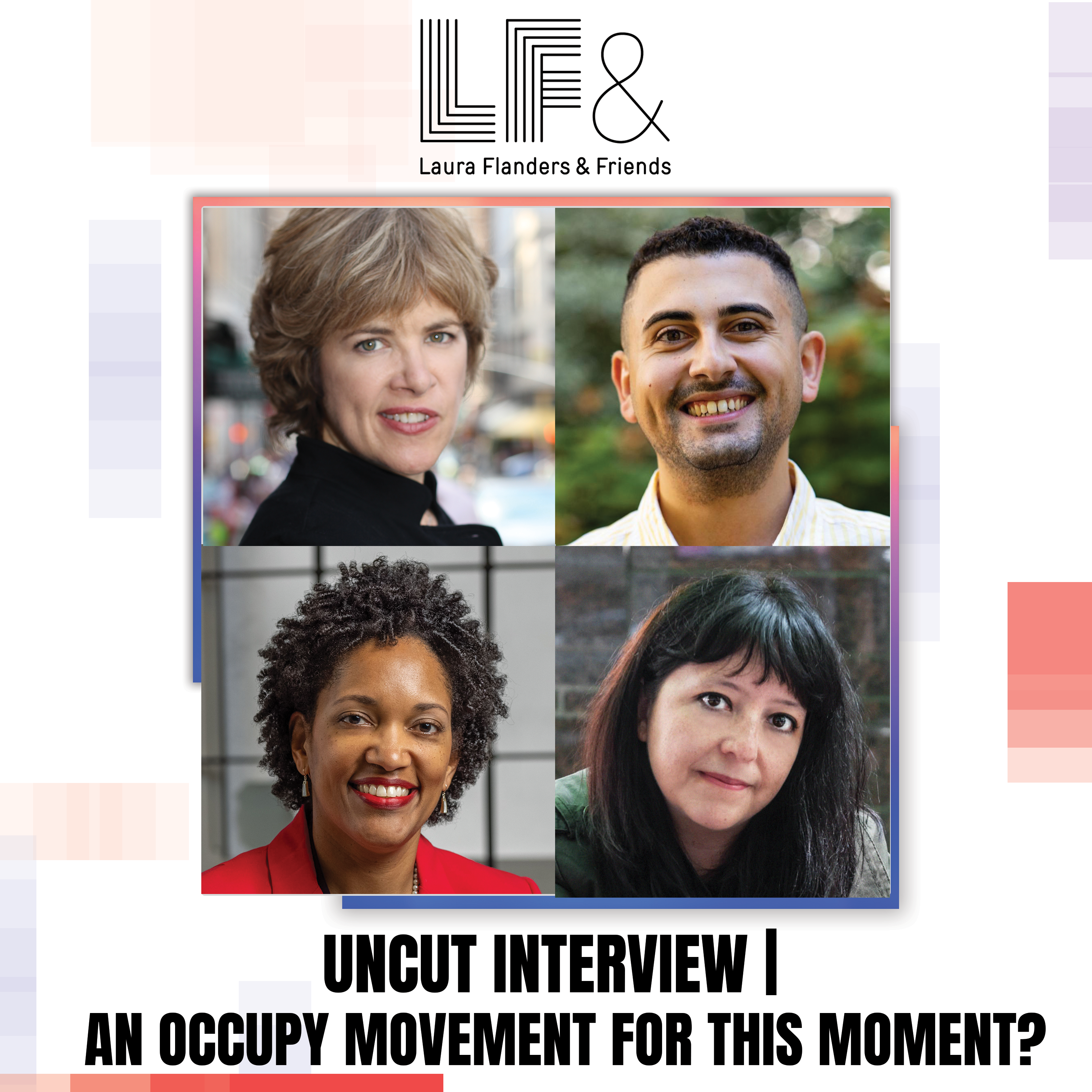For more audio extras, subscribe to Laura Flanders & Friends on your favorite podcast platform.
Were you one of the hundreds of thousands of people on the streets during the Occupy movement? For many the movement was a political awakening, as people rallied to end economic inequality and support democracy in response to the 2008 global financial crisis. On this 13th anniversary, how does the spirit of Occupy live on? And what progress — if any — has been made when it comes to the wealth gap? Joining us for that conversation is Marisa Holmes, author of the recently released book “Organizing Occupy Wall Street: This Is Just Practice” and director of “All Day All Week: An Occupy Wall Street Story” which looks at the takeover of Zuccotti Park in New York City in September 2011. Also joining us is Taifa Smith Butler, President of Dēmos, a public policy organization working to build a multiracial democracy and economy. Previously she was a leader at the Georgia Budget and Policy Institute. Award-winning journalist Amir Khafagy returns to co-host this episode. Our guests explore the links between economic inequality and authoritarianism and ask how far we’ve come as a nation to create structural, policy and practice-based changes on the economic front. How can we create a people-led economy that will lead to collective power? All that, plus a commentary from Laura.
“Dēmos has always talked about the inextricable links of economic power and political power. As I think about where we are historically with the retraction of resources, with the threat of authoritarianism and fascism and this demographic shift that is happening in our nation and the inequality that continues to proliferate, if we do nothing, we’ll be looking at apartheid in America.” – Taifa Smith Butler
“During Occupy, we really rejected representative politics because it seemed not responsive to people’s needs . . . So we just thought, ‘We’re going to do this ourselves’. We have to build alternatives ourselves from the bottom up through mutual aid networks . . . That’s what I think is going to transform the economy . . .” – Marisa Holmes
“Occupy was one of the most important things that ever happened to my life. I was maybe 21, 22 years old . . . I was just a kid from Queens, and that was the beginning of my political awakening.” – Amir Khafagy
Guests
- Taifa Smith Butler: President, Dēmos
- Marisa Holmes: Author, Organizing Occupy Wall Street
- Amir Khafagy (Co-host): Journalist, Report for America Member, Documented
Portions of this interview are featured in our episode, “Solving Economic Inequality: An Occupy Movement for this Moment?“

















